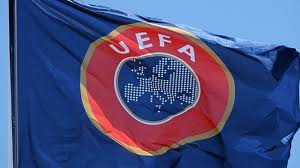As Europe’s blazered football leaders filed out of Budapest following one of the shortest UEFA congresses on record, how many of them were examining their consciences?
The annual summit of UEFA’s 54 member nations may have been dominated by fractious tit-for-tat rhetoric over Kosovo’s right to be voted in as a new member. But relatively unnoticed was another ballot, completely unrelated, that left its victim hugely disappointed and raised serious questions about whether the hand of Michel Platini was still influencing key decisions despite his ban from the game.
How else can one explain the totally illogical move, by a 33-21 majority, to vote for Florence Hardouin of France (Florence Who?) as the first elected female member of UEFA’s executive committee in preference to Norway’s Karen Espelund, who for the last five years has worked tirelessly as the voice of European women’s football?
How else can one explain why, when it came to turning Espelund’s co-opted UEFA exco position into an elected post as part of the FIFA reform process promoting greater female decision making, UEFA went for the French alternative candidate, director general of her national federation but someone, by all accounts, with little or no experience of administering the women’s game?
No-one would dare admit it, of course, but with Platini’s future unknown for a few more days until a verdict from the Court of Arbitration for Sport, it smacked of a deliberate manoeuvre to buy some insurance and secure a French voice – any French voice – on European football’s top table in the event that Platini fails to clear his name.
Noel Le Graet, head of the French federation and, more to the point, big mates with Platini, told AFP: “Florence Hardouin is respected and is someone who will work in the interests of both football and the FFF. I’m very pleased.”
So, no doubt, is Platini who, wherever he may be, is keeping a close eye on every key move made by the lieutenants he hopes to be leading again soon.
In his absence from Budapest, stand-in president Angel Villar Lllona, another of the banned UEFA leader’s most loyal supporters, had a weak stab at sincerity when he told Espelund, in open forum, that he was sorry she lost.
Not as sorry as she was.
“Obviously I’m disappointed but life goes on,” Espelund told Insideworldfootball after the vote which, in one fell swoop, terminated her role in FIFA’s most powerful regional confederation. “That’s what can happen with political elections. There is a lot of work still to be done.”
Espelund won’t comment on whether UEFA’s all-male federation presidents genuinely care about the development of the women’s game or whether there were political factors that led to her demise.
But it is public knowledge that she was one of those who spoke out about the need for UEFA to put its house in order and stop procrastinating, during Platini’s suspension, over the issue of leadership. Whether such views ultimately brought her down can only be answered by those who voted.
Quite how Tuesday’s vote will impact on the women’s game at large remains to be seen. Espelund, who championed increased investment by UEFA in the women’s game as well as vastly greater female participation, is hugely popular among the women’s football community. She has yet to decide whether she wants to be UEFA’s female representative in FIFA’s newly established 37-member Council, on which six seats have to be reserved for women, one from each region.
Europe’s national associations have until the end of this month to put forward their candidates for the rebranded FIFA exco, with a decision in September ahead of the Council’s first meeting in full session in October.
“It’s not up to me to decide,” said Espelund, who many believe will be a huge loss to women’s football. “But what I will say is that I think the role should be split so that there are two different female voices.”
Until then, eyebrows will continue to be raised about the mechanism, just as her role became even more meaningful, for overthrowing the highly respected Espelund, who made history by becoming the first woman to fit around UEFA’s powerful control board and was the incumbent in the role.
Questions too about whether her successor will simply be a woman working on men’s football or whether Hardouin will have the same effectiveness and passion for the women’s game.
“Wreck of the UEFA board,” trumpeted one tweet emanating from the Norwegian media.
Say no more…
Andrew Warshaw is chief correspondent of Insideworldfootball and was formerly Sports Editor of the European. Contact him at moc.l1745110797labto1745110797ofdlr1745110797owedi1745110797sni@w1745110797ahsra1745110797w.wer1745110797dna1745110797
